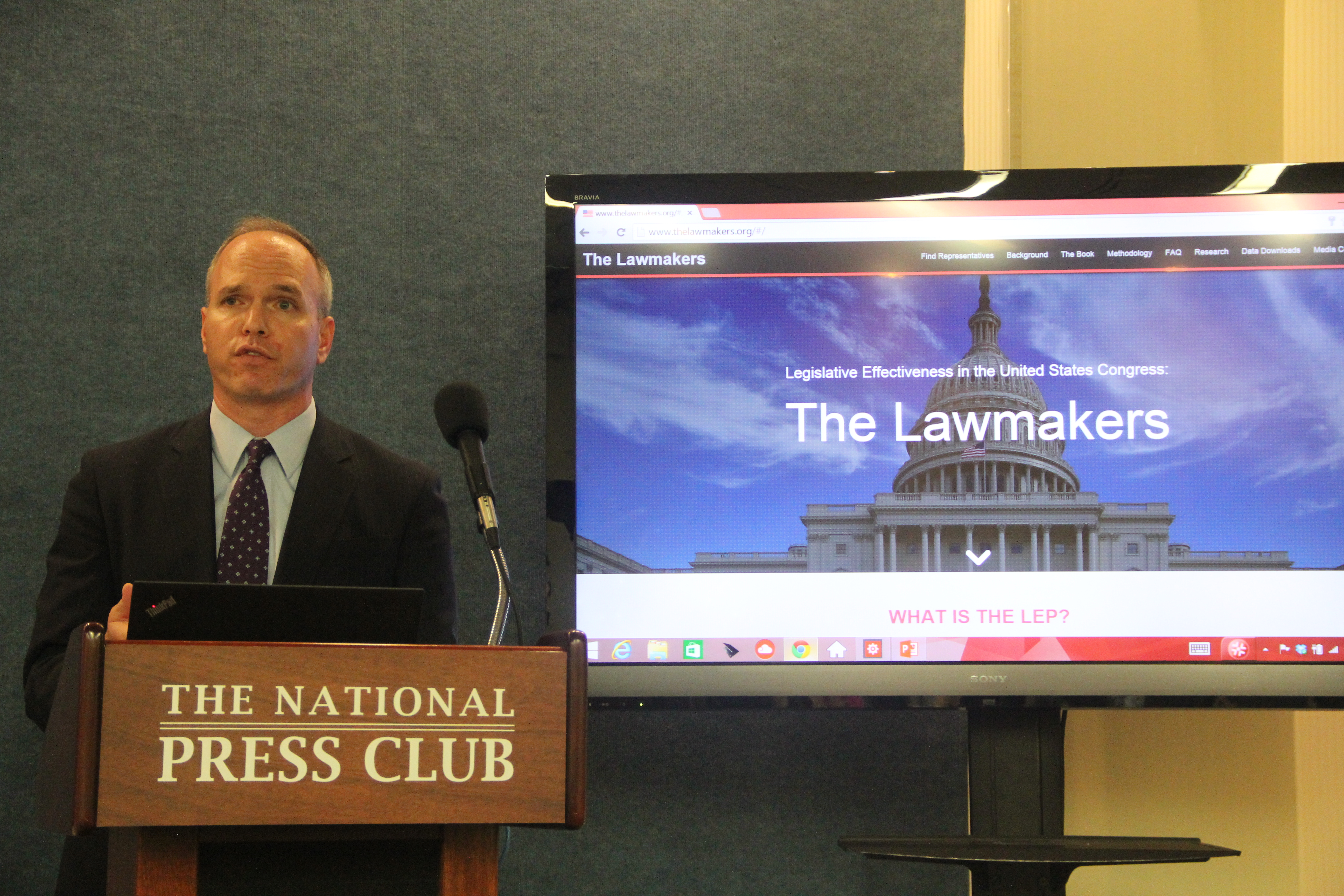WASHINGTON- With three weeks until the mid-term elections, gridlock on Capitol Hill remains a hot issue. A new website that launched Tuesday aims to show voters just how effective their congressmen are at passing legislation.
The site, Thelawmakers.org, was developed by political science professors Alan Wiseman of Vanderbilt and Craig Volden of the University of Virginia. They created a methodology called the “Legislative Effectiveness Score,”or LES, that uses criteria other than the number of bills a U.S. House member passed to judge the effectiveness of the politician.
The project reviewed every bill from Library of Congress THOMAS website starting in 1973 through 2012, which they said totaled about 150,000 pieces of legislation. Lawmakers are credited for bills that are acted on in committee, receive action beyond committee, passed the House and eventually become a law. Their measure includes 15 other indicators.
“We then also note that some bills are much more substantive and significant,” Volden said.
The effectiveness rating gives credit for those who introduce bills even if the bill receives no further action. However, it does not account for amendment activity, Wiseman said.
Among the findings is that female lawmakers on average tend to be more effective than their male counterparts, especially while serving in the minority party, according to their research.
“When we looked at minority party women, they continued to push their policy goals, tended to continue to reach across party lines to build coalitions, and were more likely to make laws based on that,” Wiseman said. Republicans currently hold the majority in the House of Representatives.
Men, on average, tended to move more toward an obstructionist position when in the minority party and enjoy more success in the majority party, Wiseman said.
Their research also found that freshmen lawmakers who are “above average in effectiveness” in their first term are more likely to continue passing legislation and go on to seek higher office. Those who are less effective are more likely to voluntarily retire from Congress.
Among the most effective lawmakers in recent history, based on the LES, were the late Edward Boland, D-Mass., the late Silvio Conte, a Republican from the same state, and John Breaux, a Louisiana Democrat who served in both the House and Senate.
Over time, the Legislative Effectiveness Score found little difference in effectiveness scores between Democrats and Republicans. Democrats had a score of .957 and Republicans with 1.045. The average score of each member is 1.0.
But some political experts say that constituents might not agree with Wiseman and Volden’s definition of “effectiveness.”
“Passing new laws is not necessarily an unadorned good,” said Karlyn Bowman, senior fellow at the American Enterprise Institute.
Bowman said some voters, often Republicans, prefer a smaller role from the U.S. government and therefore fewer new laws.
The Legislative Effectiveness Score has only been applied to the House of Representatives, but Volden and Wiseman said that they hope to eventually use the method to measure the Senate and state governments.

